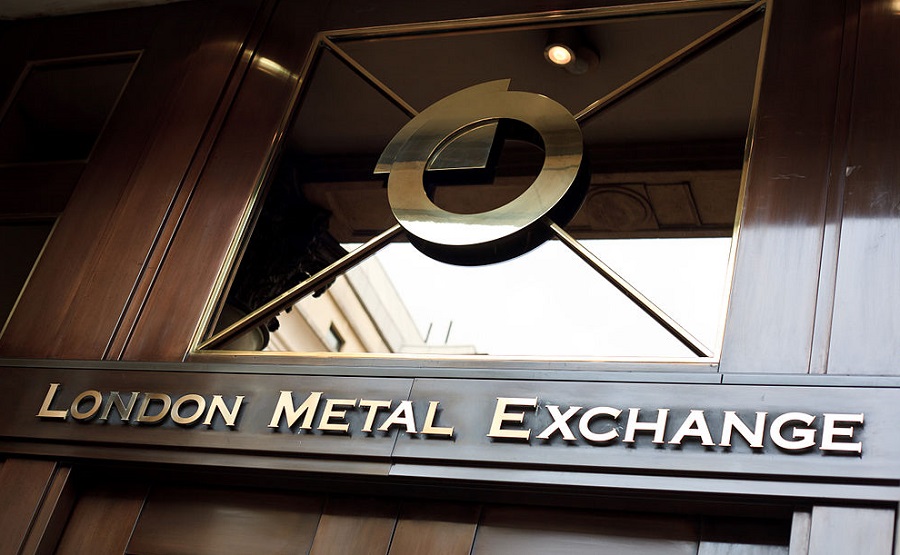
LONDON, April 16 (Reuters) – The aluminium market has never experienced anything like it.
Since the United States imposed sanctions on Russian oligarch Oleg Deripaska and United Company Rusal on April 6, aluminium has been in turmoil.
The London Metal Exchange (LME) price hit a six-year high of $2,340 per tonne last Friday. The weekly rally of nearly 12 percent was the largest since the launch of the LME’s high-grade contract in 1987.
Physical premiums in the United States are at three-year highs and the price of alumina is going haywire.
The tremors caused by sanctions on the world’s largest producer outside China are still racing down multiple channels of a supply chain that has historically been defined by surplus metal.
Now, however, cracks in that supply chain are opening at alarming speed.
Here’s where we are, one week and three days after the U.S. Treasury singled out Rusal and its owner for special sanctions treatment.

The LME three-month price is still motoring, touching a fresh high of $2,377.50 per tonne on Monday, extending the sanctions rally to $390.50 or almost 20 percent.
Funds were the wrong way round when the sanctions news broke.
LME broker Marex Spectron estimates the speculative short as of April 5 was 22 percent of open interest, “which is the largest short seen in the metal since Nov 2015”. As of last Thursday, that collective short had been slashed to under 4 percent.
The buy-back panic created time-spread chaos. The benchmark cash-to-three-months spread flipped from a contango of $20 per tonne on April 6 to a backwardation of $56 on Friday, the tightest in at least 10 years. It closed last week with a cash premium of “just” $7.
Pouring fuel on an already boiling market was confirmation on April 11 that Glencore, the marketing outlet for much of Rusal’s commodity-grade aluminium, would be declaring force majeure on some supply contracts.
Beyond the price turmoil is another brewing problem for the exchange itself.
It gave notice on April 10 that it is suspending Rusal brands as good delivery effective April 17, triggering some huge movements of stocks.
The Dutch ports of Rotterdam, Vlissingen and Moerdijk saw a combined 125,300 tonnes warranted last week, while 108,725 tonnes of metal in Malaysia’s Port Klang were taken off warrant on Thursday.
It looks like Rusal brands are being dumped onto the LME, with traders now snatching up non-Rusal brands which have just increased in physical market value.
As of April 6 some 450,650 tonnes, or 36 percent, of the aluminium in LME warehouses was designated as produced in “Eastern Europe”.
Just about all of it would have been Russian and the percentage has likely just jumped higher again.
The risk to the LME is that its high-grade aluminium contract becomes a de-facto “Rusal-grade” contract, opening a yawning gap with the physical market.
The CME suspended Rusal brands on the same day as the LME with immediate effect.
It noted there were no warranted stocks of Rusal material, but, interestingly, 42,106 tonnes of non-warranted inventory at Owensboro dropped off the CME’s figures the next day.
The Shanghai Futures Exchange has not yet commented on the status of the two Rusal brands, Irkutsk and Sayanogorsk, on its good delivery list.
The CME’s U.S. physical premium May contract closed last week at 21.75 cents/lb ($480 per tonne), compared with 10.90 cents/lb at the start of the year as sanctions against the country’s second-largest supplier of unwrought metal reinforce tariffs.
Physical premiums for other regions have also knee-jerked higher, the CME European duty-unpaid contract for May rising $25 per tonne to $130 last week.
Further up the supply chain, alumina prices have shot higher.
Metal Bulletin said on Friday its fob Australia alumina index jumped 16.7 percent overnight to $556.67 per tonne, the highest number since the index was launched in 2010.
Panic in this section of the supply chain was triggered when Rio Tinto said it was declaring force majeure on some of its raw material contracts.
Rio Tinto finds itself in the unfortunate position of having Rusal as a minority stakeholder in its Queensland Alumina refinery and of being caught in a web of supply contracts with Rusal plants such as the Aughinish refinery in Ireland.
The price reaction says the market expects more major disruption in the bauxite-alumina supply chain.
It was already under unusual stress after a Brazilian judge in February ordered the partial closure of the giant Alunorte refinery in Brazil after allegations of toxic spills.
With capacity of 6.3 million tonnes per year, Alunorte supplies around 10 percent of the world’s alumina outside of China and the loss of units was already having an impact.
Indeed, Norway’s Hydro is now idling 230,000 tonnes per year of production at the Albras smelter, which is integrated with Alunorte.
That, of course, creates a negative feedback loop for the metal section of the market.
The sanctions shockwaves are going to keep coming.
There are question marks over the status of all of Rusal’s operating assets, first and foremost those outside Russia, which risk falling under the sanctions net.
Rusal has only one overseas aluminium smelter, the 130,000-tonne-per-year Granges plant in Sweden.
But it has extensive bauxite operations in Guyana, Jamaica and Guinea as well as alumina refineries in Jamaica, Ireland and Ukraine.
These accounted for around 52 percent and 62 percent of group bauxite and alumina production respectively last year.
Rusal’s own Russian smelters are heavily dependent on the flow of raw materials from these global operations.
None of which suggests there’s going to be any let-up in the tightening taking place along the entire physical aluminium supply chain.
Meanwhile, the Rusal share price, which for obvious reasons was the first to react to the sanctions announcement, has on Monday taken another tumble on the threat of new U.S. action.
(By Andy Home; Editing by Dale Hudson)